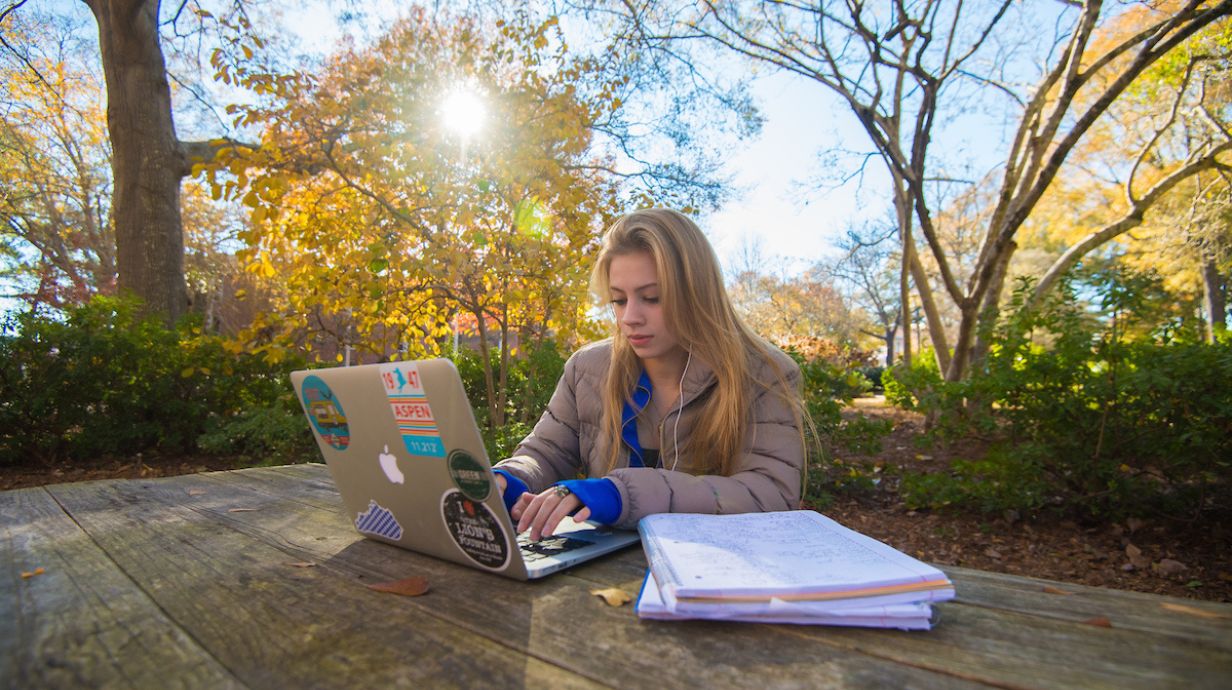Ph.D. in Health and Kinesiology
Equip yourself with the advanced knowledge and research skills to excel in the dynamic fields of health and kinesiology.

About this Program
The Ph.D. in health and kinesiology degree program prepares students for university teaching and research positions. Also, the degree prepares students for research careers in industry and medicine that include the study of health, exercise, sports/recreation, and sport analytics.
The program has four emphasis areas:
- Exercise Science
- Health Behavior
- Sports/Recreation
- Sport Analytics
On this Page…
Program Information
Program Type
Doctorate Program
Area of Study
Health and Social Services
School
Duration
3 years
Degree
Ph.D. in Health and Kinesiology
Program Location
Emphases
Exercise Science;
Health Behavior;
Sports/Recreation;
Sport Analytics
Required Credit Hours
63
Degree Requirements
All Ph.D. students must complete a minimum of 63 credits beyond a master’s degree program in directed research, professional seminar, research methods and statistics, and specialization course work.
COURSE REQUIREMENTS
Directed Research (24 credits)
- HK 797: Dissertation (18 hours)
- HK 751: Advanced Independent Study (3 hours)
- HK 752: Advanced Independent Study (3 hours)
Professional Seminar (6 credits)
- HK 750: Seminar in Health and Kinesiology (1 hour repeated six times)
Research Methods & Statistics (12 credits)
Course credits to be selected in consultation with adviser.
Specific course recommendations include:
- HK 710: Meta-Analysis (3 hours)
- HK 711: Measurement Theory & Practice (3 hours)
- NHM 726: Applied Regression Analysis (3 hours)
- Phad 780: General Linear Models (3 hours)
- Phad 781: Applied Multivariate Analysis (3 hours)
- Psy 703: Quantitative Methods I (3 hours)
- Psy 704: Quantitative Methods II (3 hours)
- SW 705: Applied and Inferential Statistics (3 hours)
Emphasis Area Coursework (21 credits)
Course credits to be selected in consultation with adviser.
OTHER ACADEMIC REQUIREMENTS
The student also must complete written and oral comprehensive exams before undertaking the prospectus and dissertation.
SPECIALIZATIONS
Students can choose from the following emphases:
Disclaimer
Admission Considerations
Our doctoral program operates under the mentorship model. To gain admission to the doctoral program, a prospective student must match himself or herself with a faculty member who agrees to accept the applicant as a student. The process typically begins with the student becoming familiar with the research interests of our department’s faculty.
An overview of our current faculty interest can be obtained below:
The next step would be for the prospective student to contact one of the faculty members whose area of research is of interest to the student. This initial contact could be by phone, e-mail, or letter.
The prospective student and potential faculty member would then enter into discussions about the possibility of the student being accepted by the faculty member as a doctoral student. If a faculty member agrees to accept a student, then the student can proceed with the formal admission process through the University’s Graduate School.
Departmental financial support, such as, graduate assistantships, are available to graduate students.
- For more information, please contact the Graduate Coordinator, Dr. Tom Andre.
What does a Ph.D. in Health and Kinesiology look like on the job market?
Annual income for Exercise Physiologists in 2022.
Annual income for Sport Psychologist in 2022.
Stay up to date with Exercise Science at UM!
Follow us on Instagram to stay in the know.
View this profile on Instagram
Next Steps
Explore Affordability
We have a variety of scholarships and financial aid options to help make college more affordable for you and your family.
Apply to the University of Mississippi
Are you ready to take the next step toward building your legacy?
